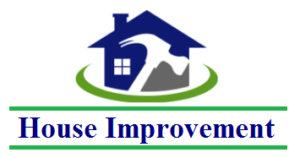Unless you’re planning on buying a house with all cash, chances are you’re going to need financing in some form or fashion. There are a lot of different options and ways to get financing.
Lenders typically look at your credit history, credit score, debt to income ratio, and how long you have had the same job to determine your eligibility for certain loan programs. The higher your credit score and the better your credit history, the more favorable the terms. But even if you have poor credit, it doesn’t mean that you won’t qualify for a home loan. There are several options available even with a low down payment, down payment assistance programs, and grants.
Most home loans do require a credit score of at least 580. Anything over 720 will offer the best terms, but credit score isn’t everything. Paying your bills on time, eliminating any delinquent accounts, and not having a high debt to income ratio all factor in to the terms and interest rate for a home loan.
Related: What does it mean to lock in a mortgage rate?
Conventional loan
This is the most common and traditionally works when there is a higher down payment such as equity from an existing home. Interest rates tend to be lower and terms more favorable but down payments need to be at least 10% to 20%.
FHA loan
This is a low-down-payment option with about a 3.5% requirement that can be built-in with loan assistance programs. This might have a little higher interest rates but more favorable terms for first-time homebuyers. Mortgage insurance may be required.
USDA loan
This is a zero-down home loan only available for certain rural areas and certain types of homes. This might be a good option depending on the home you choose.
VA loan
This is reserved for military personnel and their family and typically requires a zero to low down payment option where sellers pay closing costs.
Owner financing
While unusual, owners may be able to finance their own loan by offering higher interest rates to those that may not qualify for traditional financing methods.
Where to get a home loan.
Banks
Anyone can walk into a bank and apply for a home loan. Banks may offer more favorable terms but may also be limited in what they can offer since their lender options are also limited.
Credit Unions
A credit union is also like a bank and it can offer more favorable terms but limited options.
Mortgage Advisor
Also called mortgage officers, these individuals can obtain financing from a variety of different sources, lenders, and banks across the country and may be more expensive upfront book and typically offer lower interest rates and better terms.
Related: What to know about the recent spike in mortgage rates
In general, the longer your loan term, the more interest you will pay. Loans with shorter terms usually have lower interest costs but higher monthly payments than loans with longer terms.


